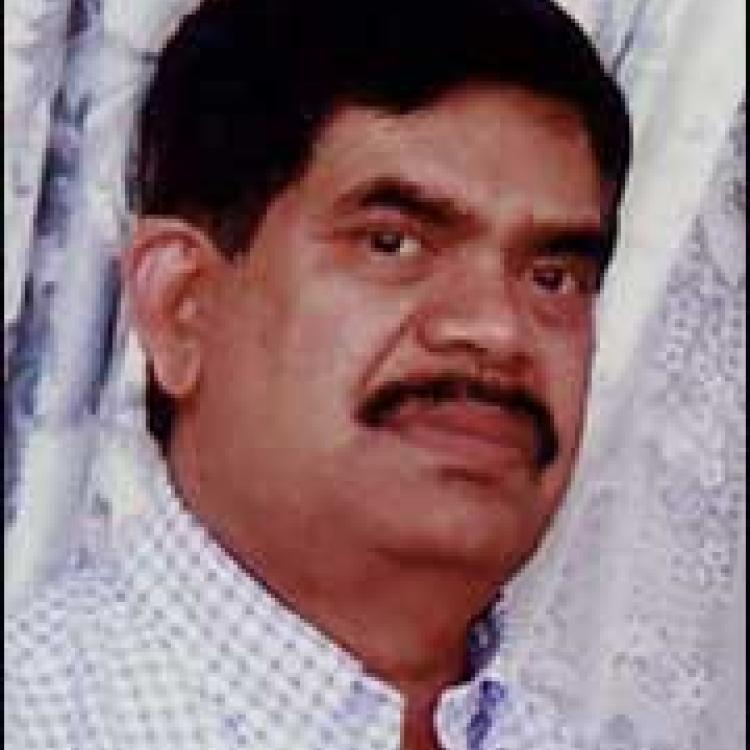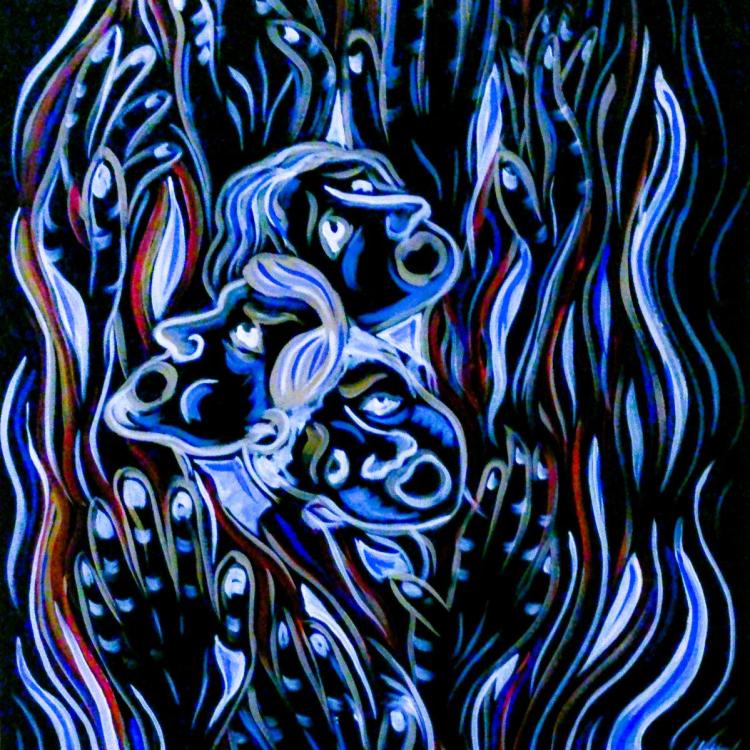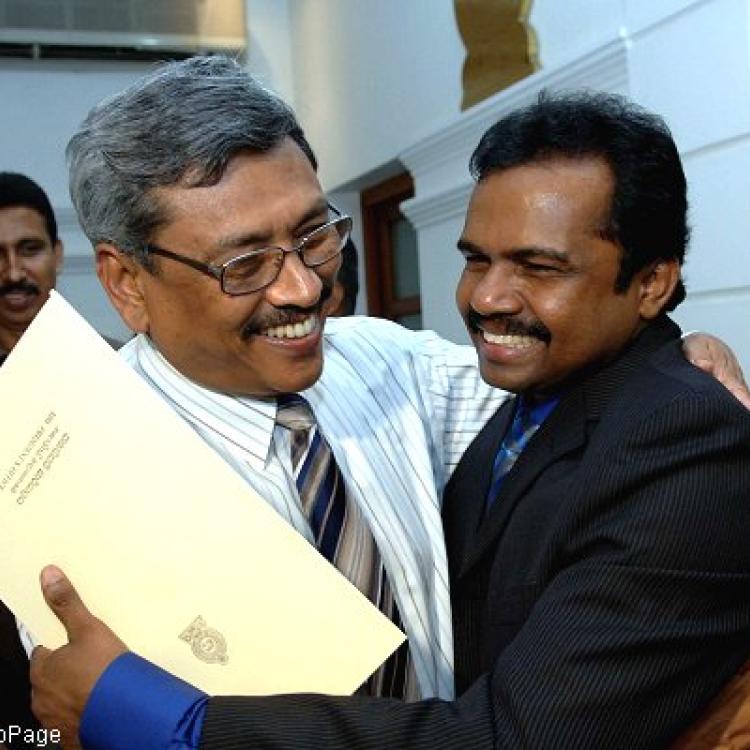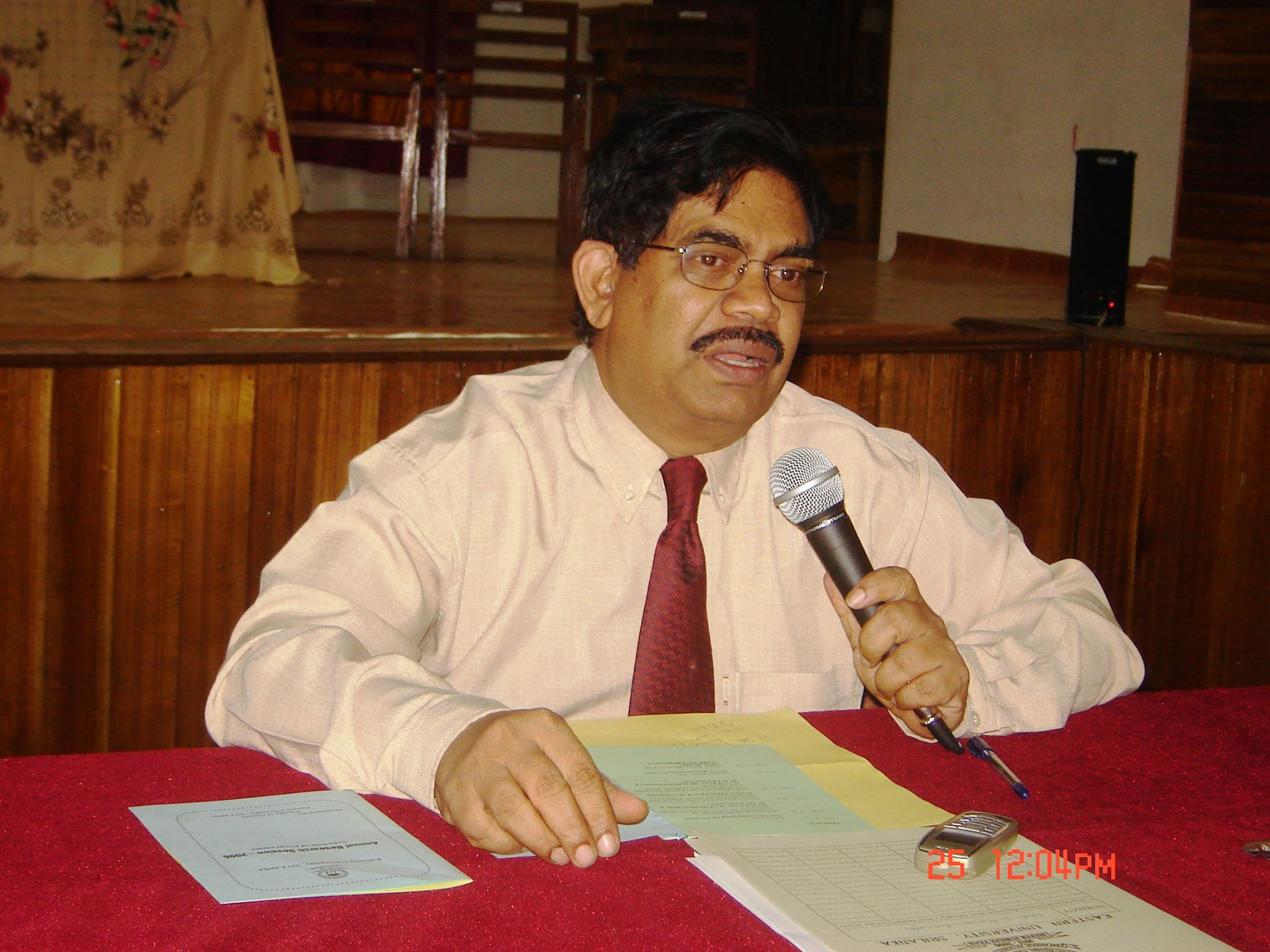
Professor S. Raveendranath
In December 2006, Professor S. Raveendranath, the Vice-Chancellor of Eastern University in Sri Lanka, disappeared after attending an official meeting in a high-security zone in Colombo. Despite repeated requests for state protection and the deepening threats he faced, no meaningful investigation has brought answers. Nearly two decades on, his family continues to demand truth and justice.
Prof. Raveendranath was forced to resign his post following threats from the paramilitary Tamil Makkal Viduthalai Pulikal (TMVP), headed by pro-government paramilitary leader Vinayagamoorthy Muralitharan, also known as Karuna Amman, who has long been associated with former president Gotabaya Rajapaksa and successive Sri Lankan regimes. Karuna was one of four individuals sanctioned in March this year by the UK government for involvement in "serious human rights violations". His former deputy Sivanesathurai Chandrakanthan, also known as Pillayan, was arrested by Sri Lanka's Criminal Intelligence Department (CID) last month, thought to be in relation to the enforced disappearance of Professor Raveendranath.
In this interview, his brother Raj speaks to us about Raveendranath’s life, the circumstances of his disappearance, and the enduring grief his family carries.
Could you start by telling us a bit about your brother—what kind of person he was and what he stood for?
My brother was incredibly intelligent from a young age. He was quiet and thoughtful. He went to Jaffna Hindu College and was known for being academically gifted. Over time, he built a respected career and eventually became a professor and later the Vice-Chancellor of Eastern University. People admired him, and he always treated others with dignity.
In terms of the Eelam struggle, he didn’t take part in the armed movement, but he still contributed in his own way. He used his PhD in Agriculture to educate and assist members of the Liberation Tigers of Tamil Eelam (LTTE), particularly in developing innovative farming and fishing techniques in Batticaloa. Through this work, he had several interactions with Prabhakaran, and also with Karuna and Pillayan, back when they were part of the LTTE.
Can you walk us through the events leading up to your brother’s abduction in December 2006?
At the time, Eastern University was dealing with a lot of corruption. My brother called it out and warned those responsible to stop. Naturally, this created tension. He was under significant pressure to resign, and over time, that pressure turned into threats. He faced harassment from people like Karuna and Pillayan and their affiliates, and his family’s safety became a serious concern.
Despite everything, he tried to stay in Batticaloa and continue his work. But eventually, the situation became too dangerous, and he decided to move to Colombo for his safety. I pleaded with him to come to London and stay with me, but he refused.
He planned to resign formally, but the Ministry wouldn't accept it. I still remember a phone call we had — he said he had to attend one last administrative meeting on 15 December 2006, and then he would be finished with the university. That was the last time we ever heard from him.
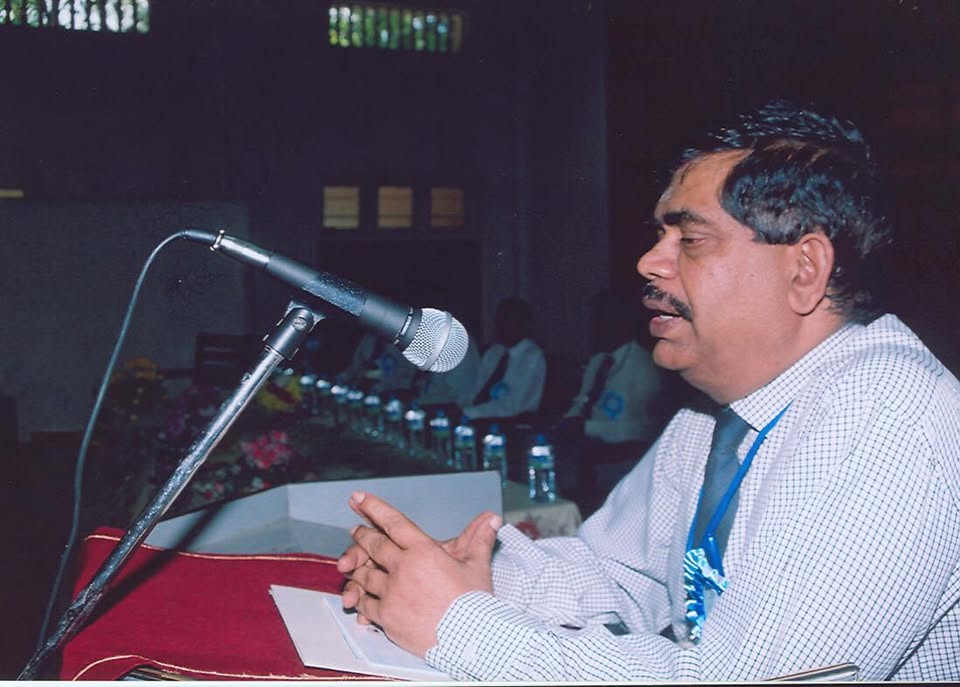
How did the authorities respond at the time? Do you believe they took the case seriously?
If the authorities had taken it seriously, we would know what happened by now. They didn’t just ignore it; they were involved.
When he stepped down, my brother wrote to Gotabaya Rajapaksa asking for protection. They didn’t provide it. He asked again, specifically for protection on the day of that final meeting. They still didn’t give it. In fact, they insisted he attend. He had email communication with them — proof of his efforts. But they abandoned him. They were complicit in his disappearance.
What are your thoughts on the recent investigation into Pillayan and any possible connection to your brother’s case?
I am absolutely certain that Pillayan was involved in my brother’s disappearance. There’s no doubt in my mind. I’ve read news articles that Pillayan was connected to corruption at the university, and my brother, stood firmly against it.
My brother never gossiped, and never played politics - he simply did what was right. That’s who he was.
Do you feel that the investigation into Pillayan is genuine or politically motivated?
There is truth behind the allegations. However, the government’s investigation isn’t about justice - it’s about politics. Different governments come and go. I don’t believe any of them will ever deliver justice.
How do you respond to the perception that justice in Sri Lanka remains selective or delayed, especially for Tamil victims?
Justice doesn’t exist for Tamils in Sri Lanka. We’ve been saying this for years. One major issue is that we’re not united as a people. Until that changes, we’ll keep suffering. To see real change, we would need another leader like Prabhakaran to rise.
How has your brother’s disappearance impacted your family over the years?
It’s broken us. My mother passed away in 2018, still waiting for her son to return. He was her first child. She never left the house - just waited and hoped every day.
His wife is still living in Eelam, alone. She doesn’t attend any events. Her life has stopped. Even now, all of us cry when we think of him. The pain is always there. Nothing has healed.
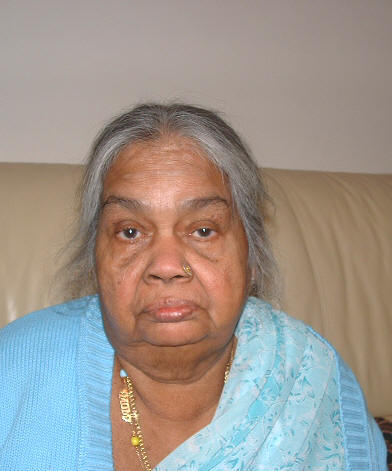
Professor Raveendranath's mother, late Mrs. Saraswathy Sivasubramaniam
What message do you have for other families of the disappeared in Sri Lanka?
In my brother’s case, at least people still speak about him internationally. But so many other mothers are still out there, protesting, holding photos of their children, begging for answers. What can we say to them? There’s nothing we can say that can take away their pain.
To many, it’s just a news story. But unless you've gone through this—lost someone and never found out where they are—you can never truly understand what it feels like.
 Professor Raveendranath (pictured left) with family members.
Professor Raveendranath (pictured left) with family members.
What are your hopes for truth and justice in your brother’s case? What message would you like to give the Sri Lankan Government?
If this new government genuinely wants equality, they must begin by giving justice to Tamils. Without justice, there can be no progress. The country is still haunted by violence, killings, and instability. It’s not just Tamils—Sinhalese and Muslim communities suffer too.
The violence must end. And for that to happen, truth and accountability must come first.

